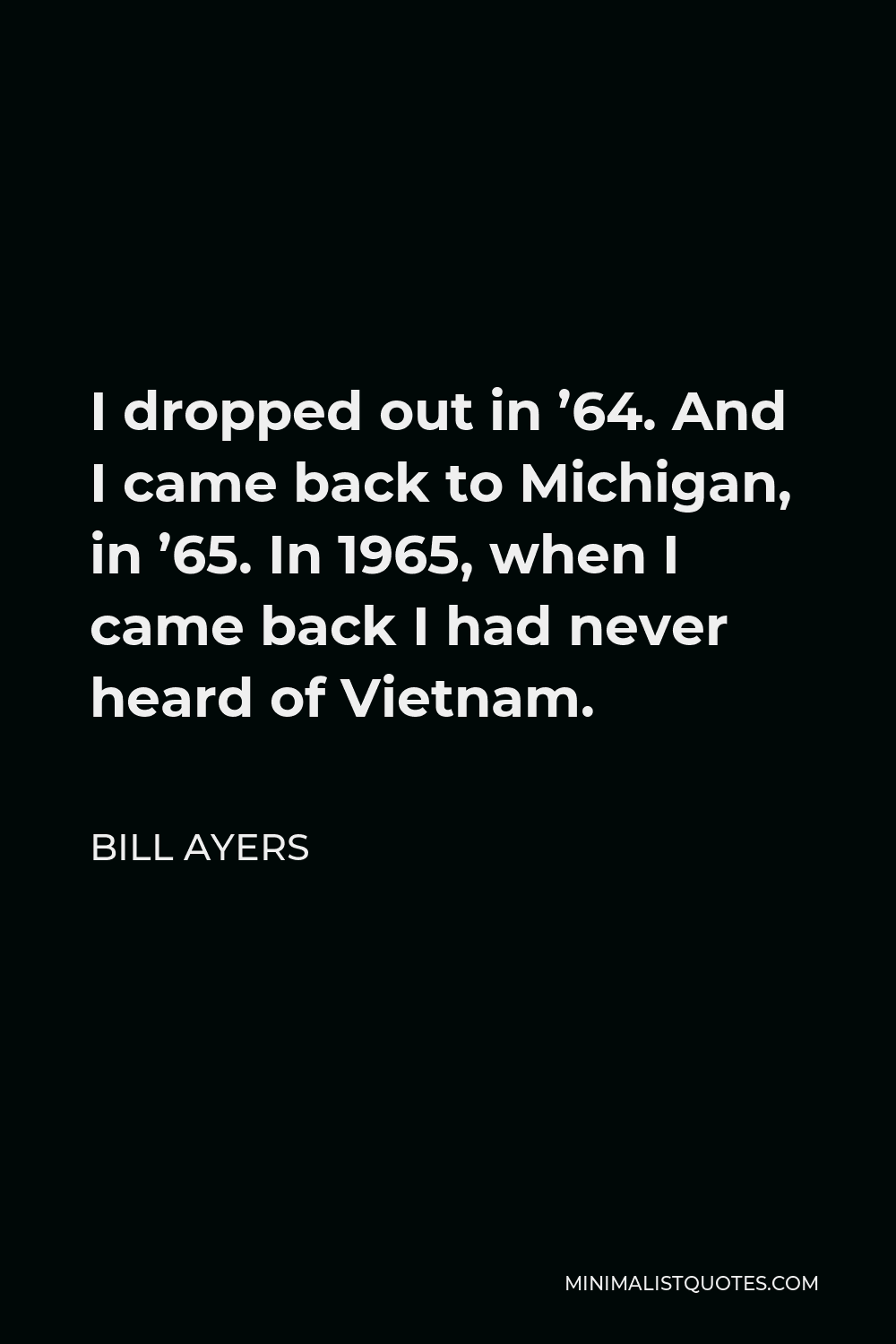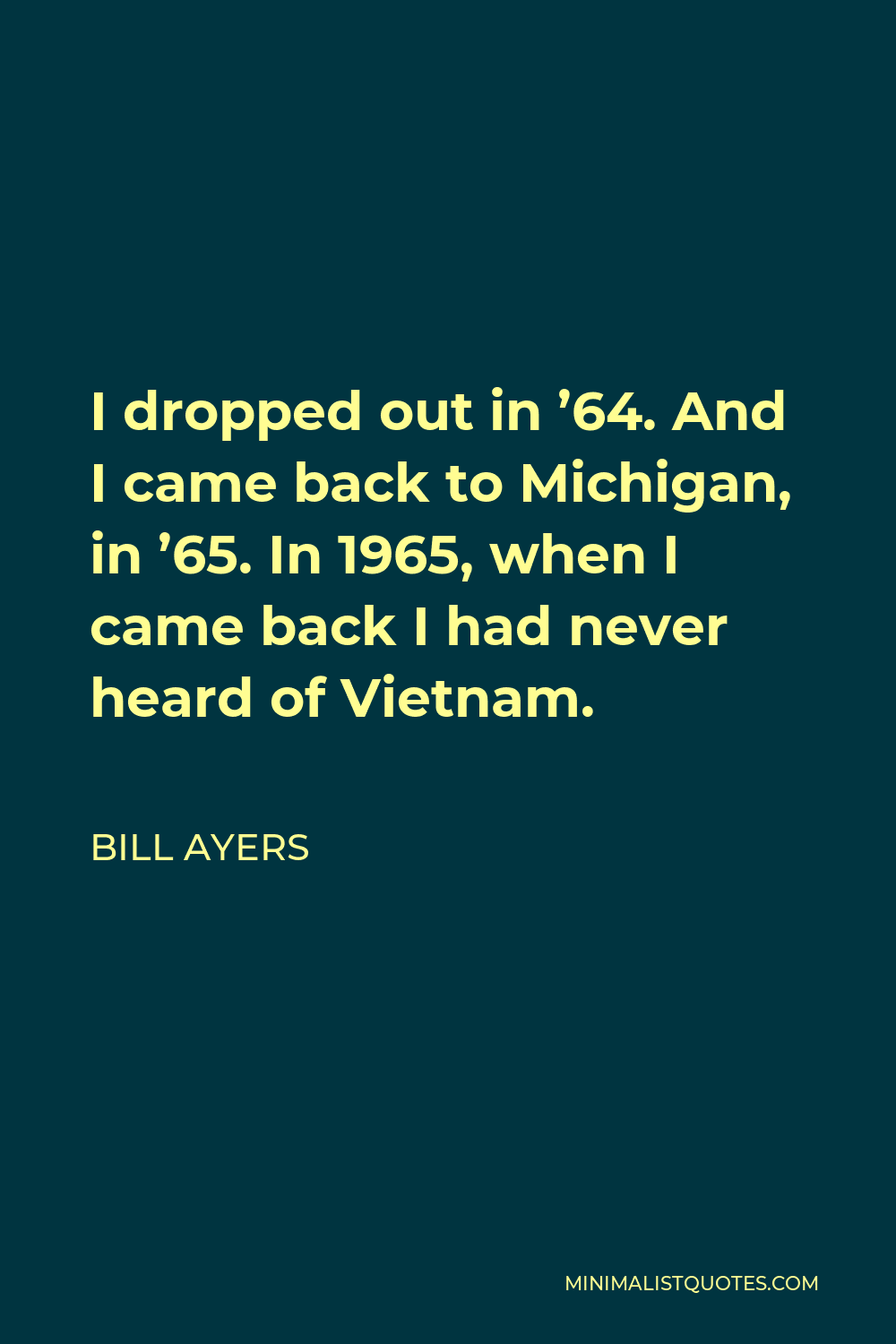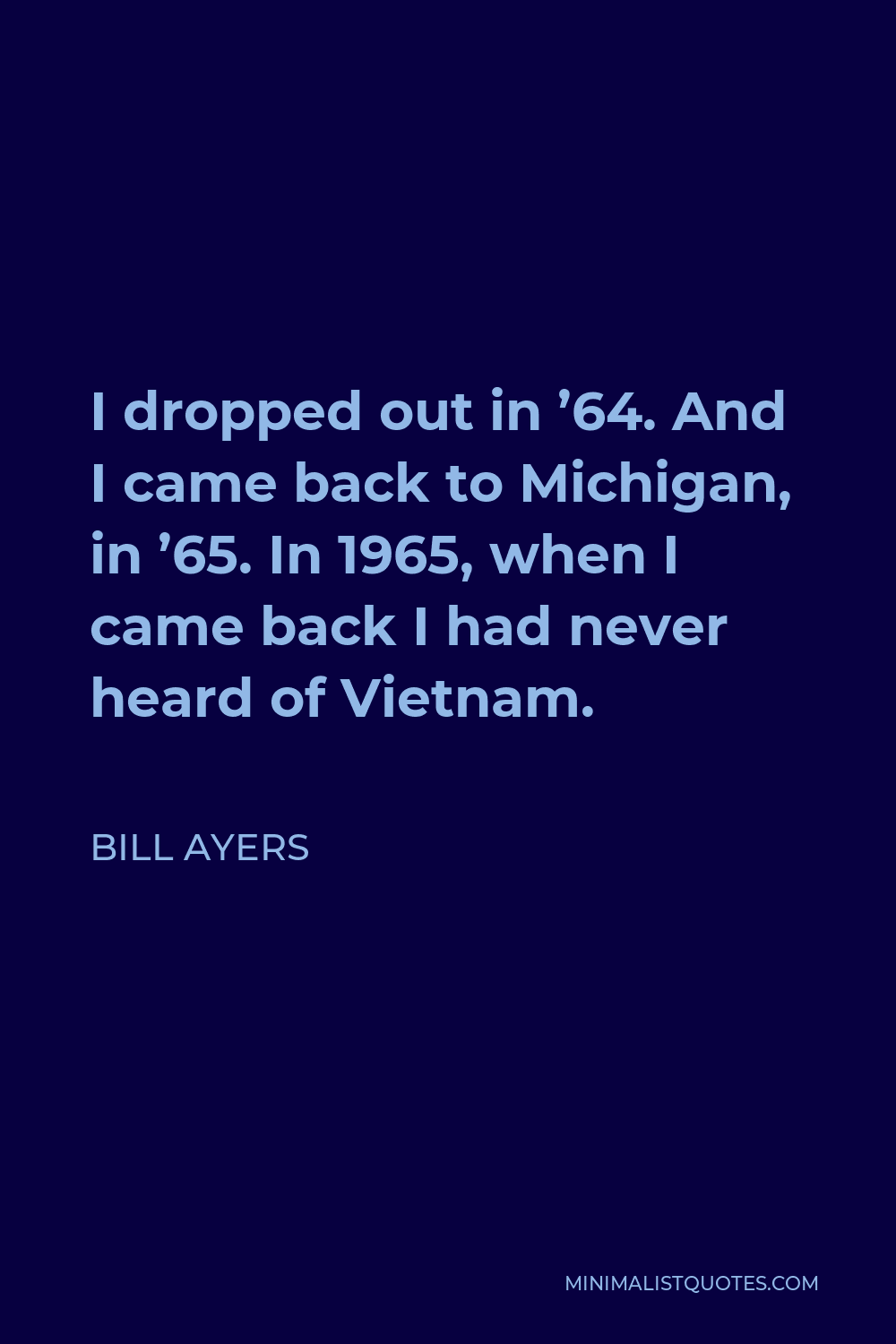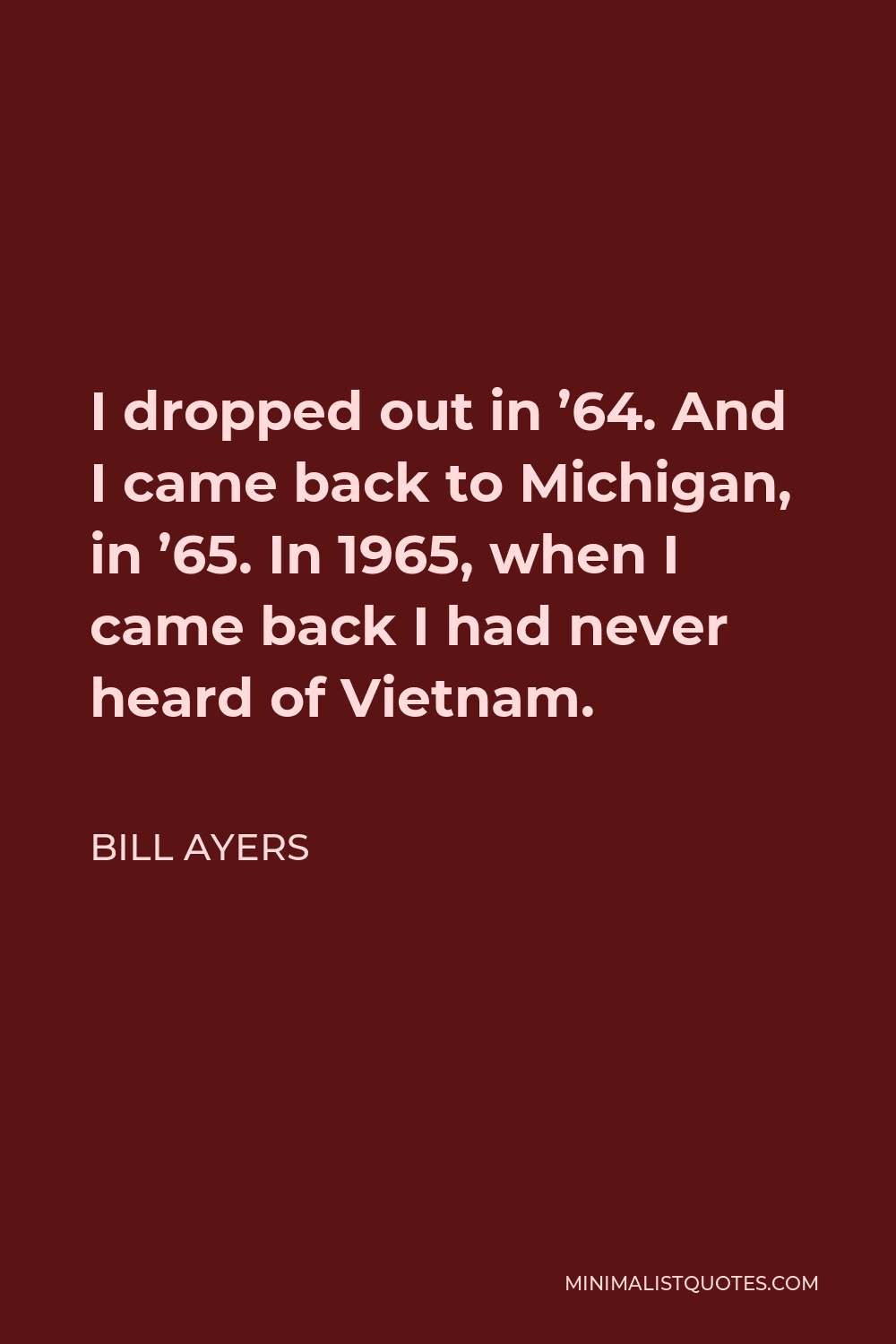So I had the great advantage of being able to play up to the older kids and play down to the younger kids and I think that’s part of what propelled me to become a teacher at some point in my life. But it was a comfortable childhood. It was a privileged childhood.
BILL AYERSI dropped out in ’64. And I came back to Michigan, in ’65. In 1965, when I came back I had never heard of Vietnam.
More Bill Ayers Quotes
-






-





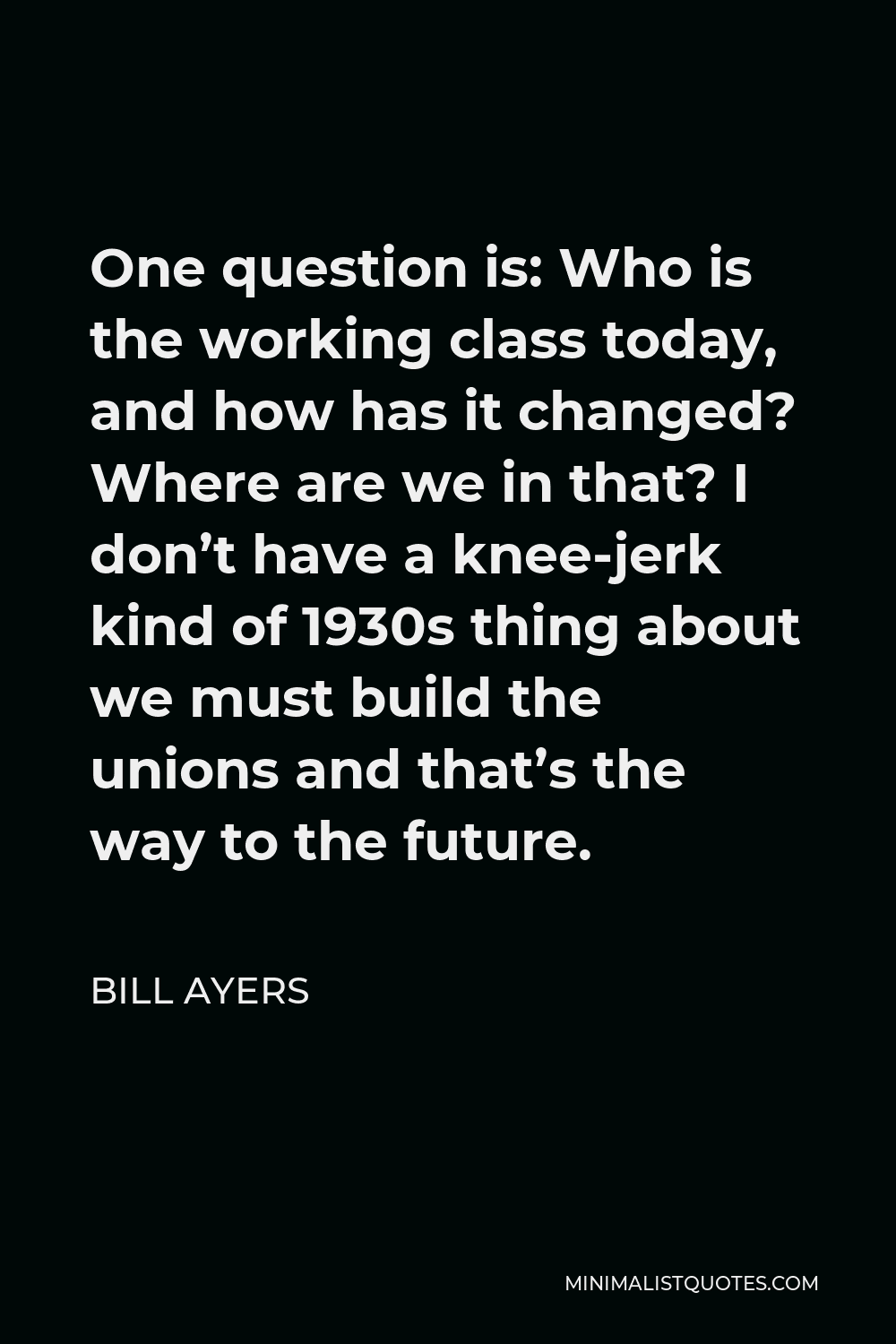
One question is: Who is the working class today, and how has it changed? Where are we in that? I don’t have a knee-jerk kind of 1930s thing about we must build the unions and that’s the way to the future.
BILL AYERS -





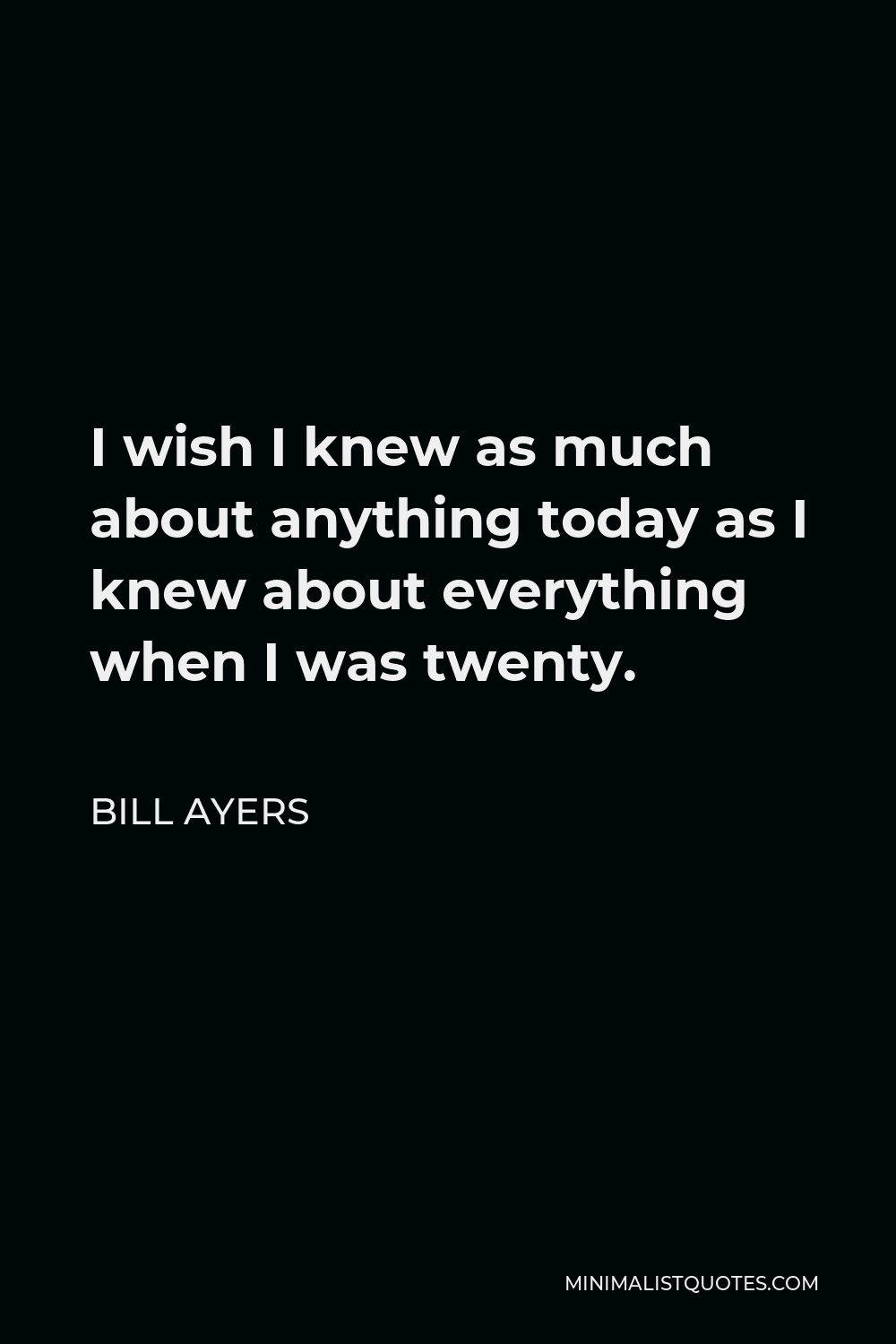
I wish I knew as much about anything today as I knew about everything when I was twenty.
BILL AYERS -





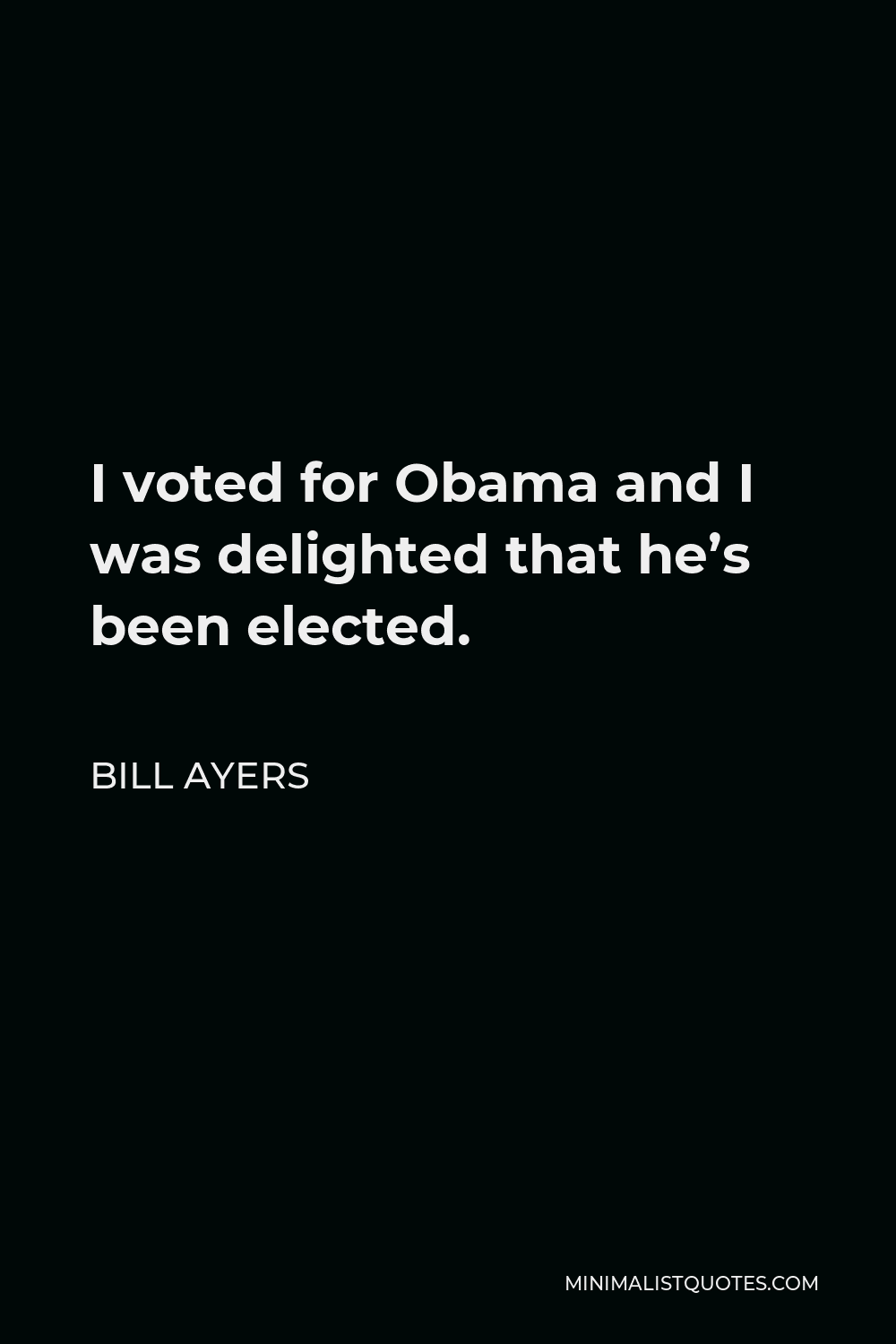
I voted for Obama and I was delighted that he’s been elected.
BILL AYERS -





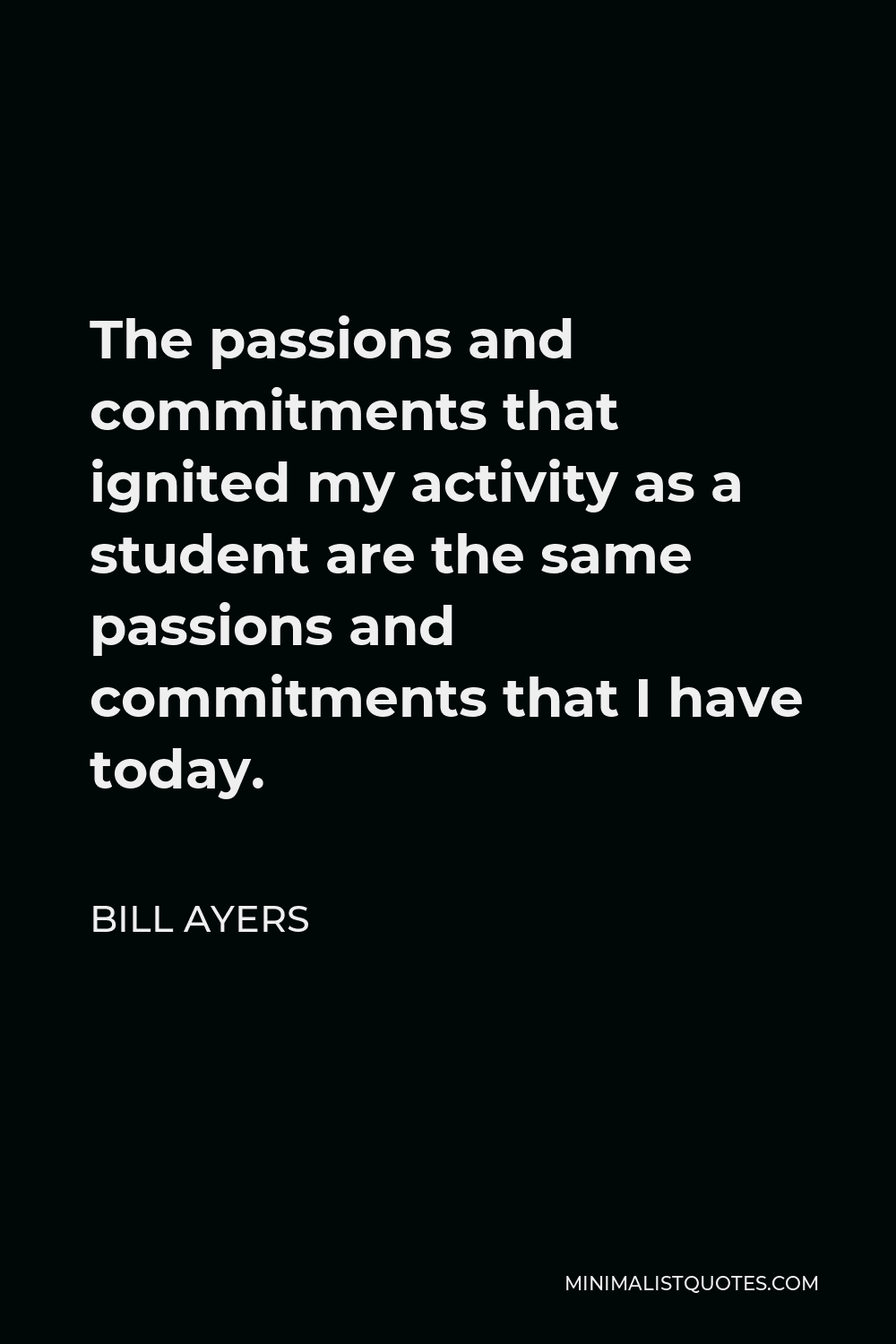
The passions and commitments that ignited my activity as a student are the same passions and commitments that I have today.
BILL AYERS -






I taught. I lectured at universities. I spoke to my students. I spoke in certain public forums. But what I didn’t do was respond to microphones being thrust in my face and saying, what is your relationship with Obama and are you an unrepentant terrorist?
BILL AYERS -





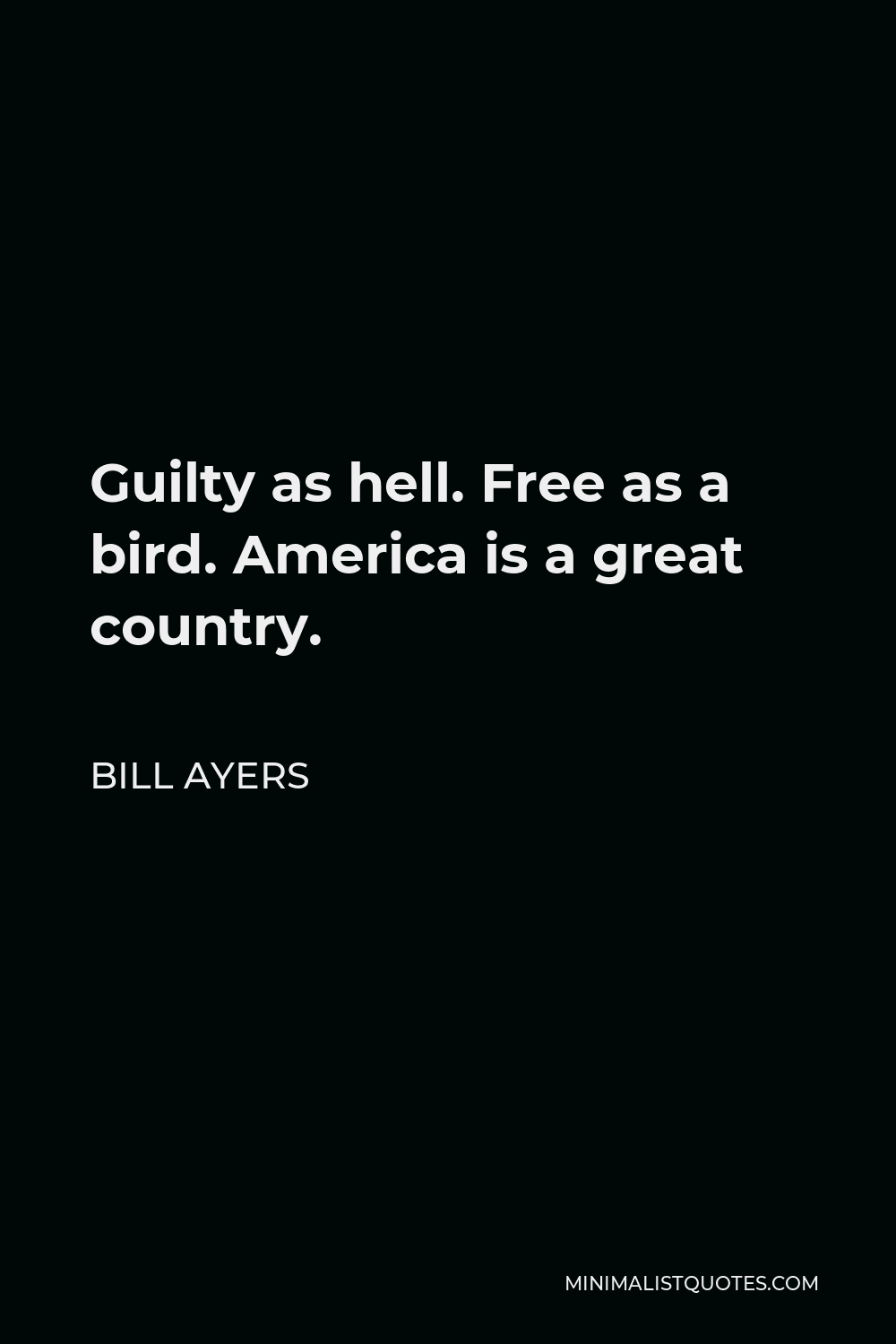
Guilty as hell. Free as a bird. America is a great country.
BILL AYERS -





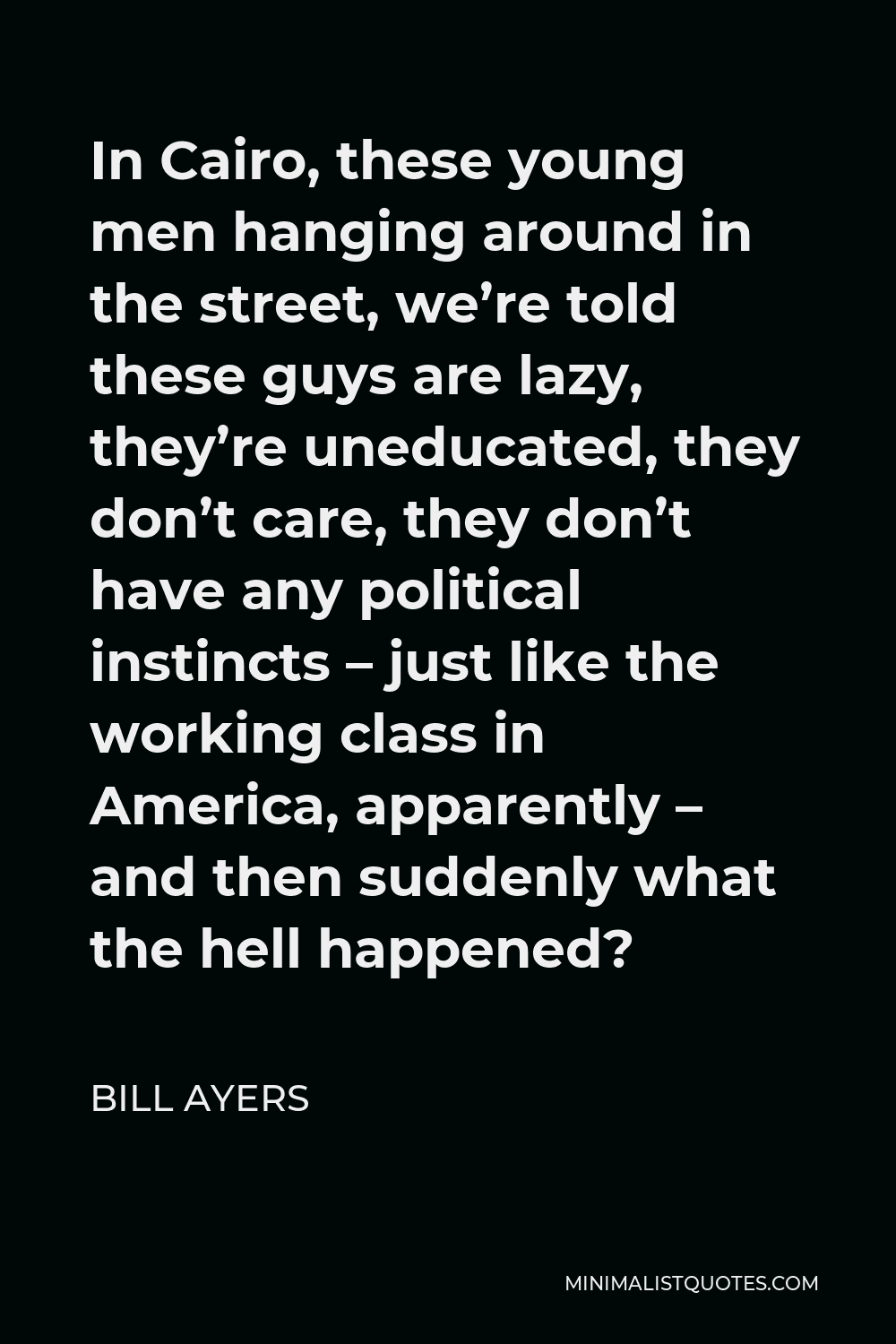
In Cairo, these young men hanging around in the street, we’re told these guys are lazy, they’re uneducated, they don’t care, they don’t have any political instincts – just like the working class in America, apparently – and then suddenly what the hell happened?
BILL AYERS -





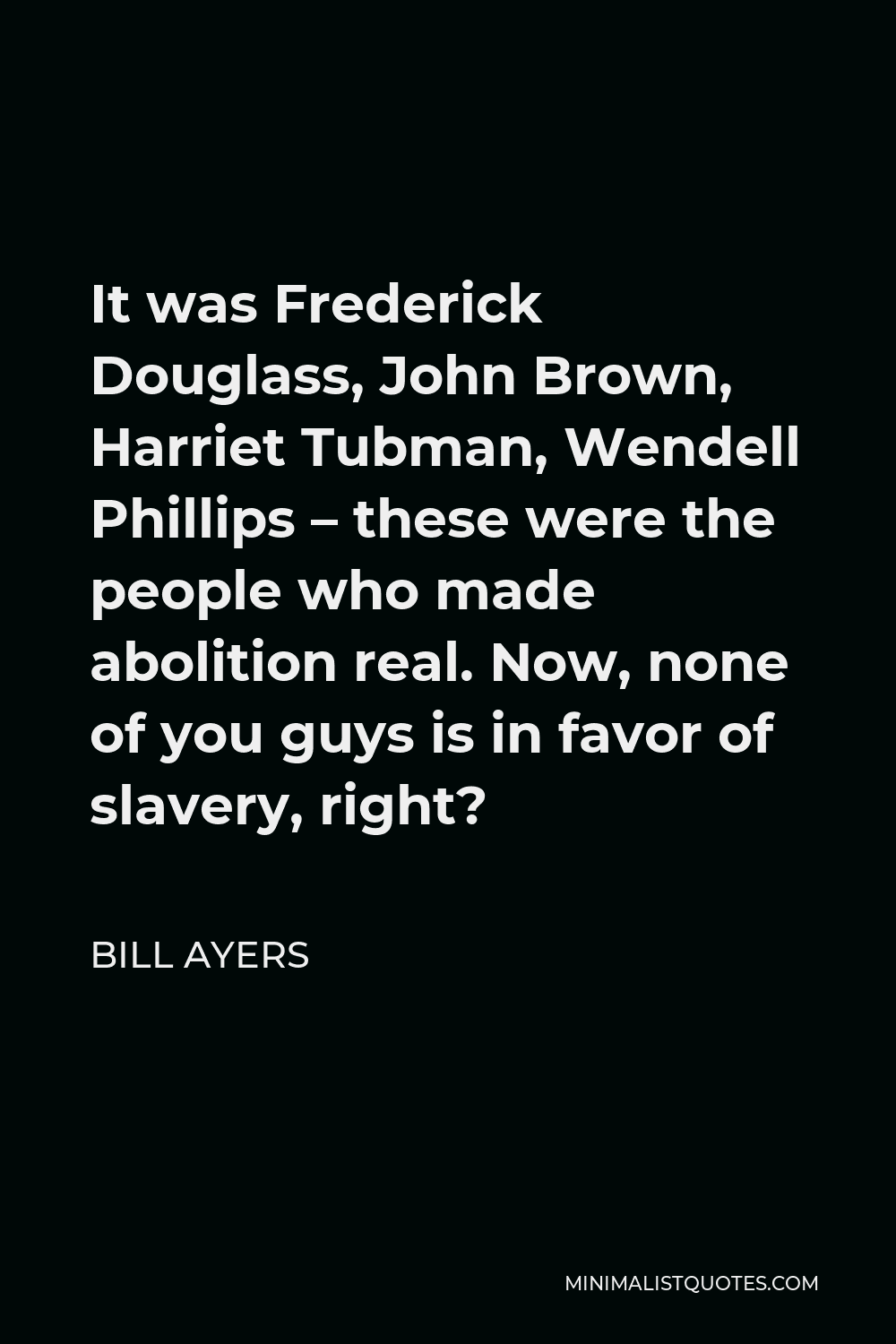
It was Frederick Douglass, John Brown, Harriet Tubman, Wendell Phillips – these were the people who made abolition real. Now, none of you guys is in favor of slavery, right?
BILL AYERS -





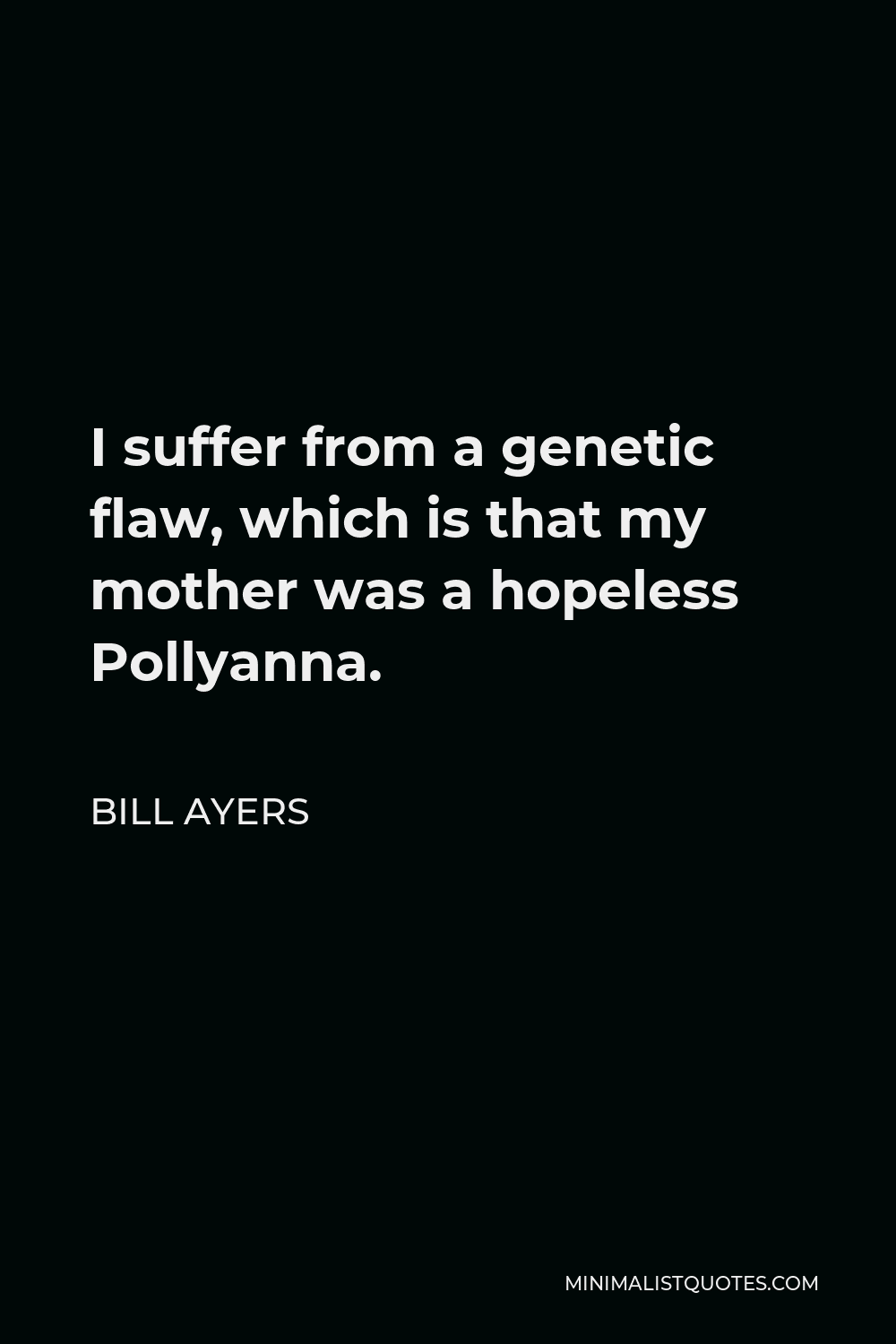
I suffer from a genetic flaw, which is that my mother was a hopeless Pollyanna.
BILL AYERS -





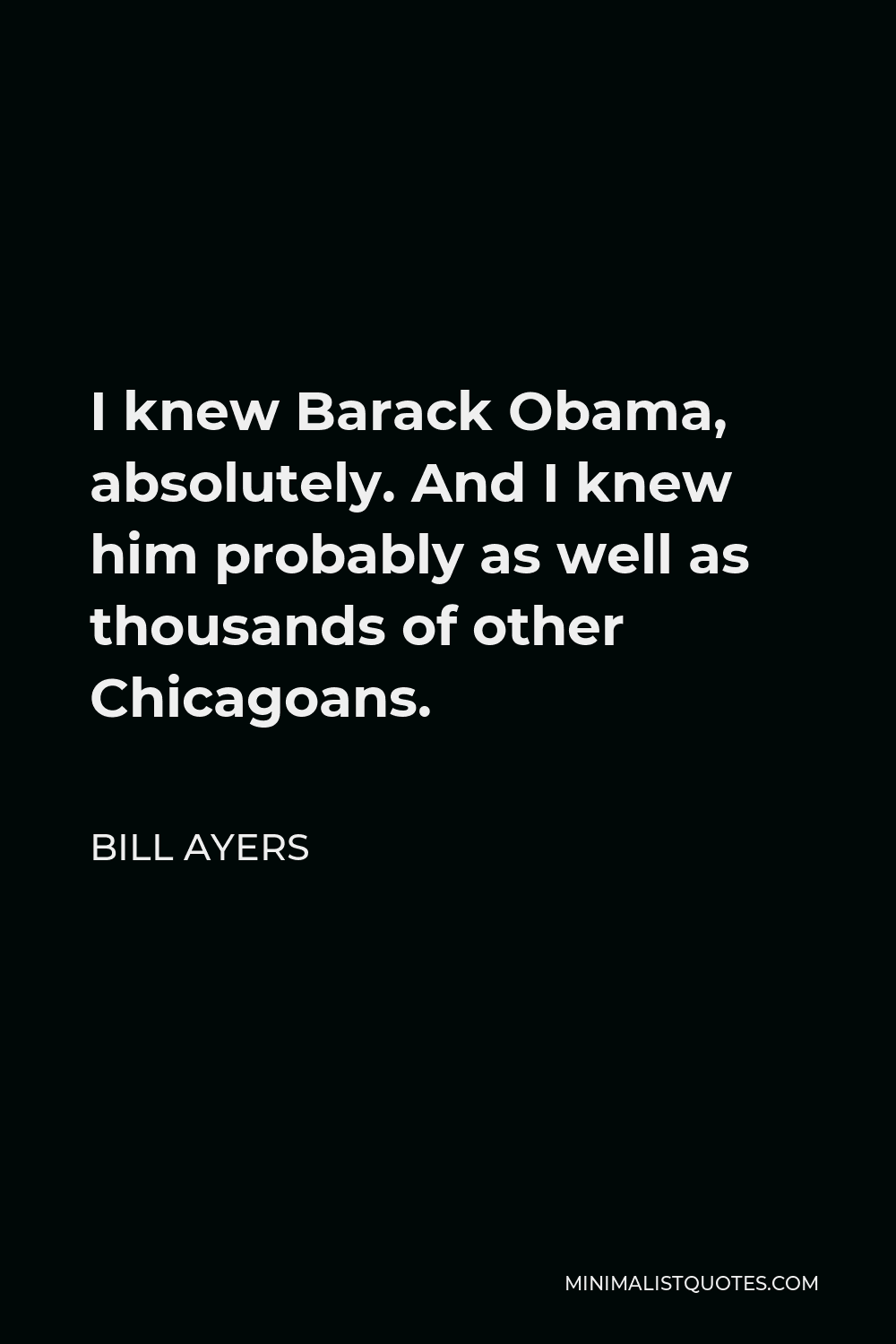
I knew Barack Obama, absolutely. And I knew him probably as well as thousands of other Chicagoans.
BILL AYERS -





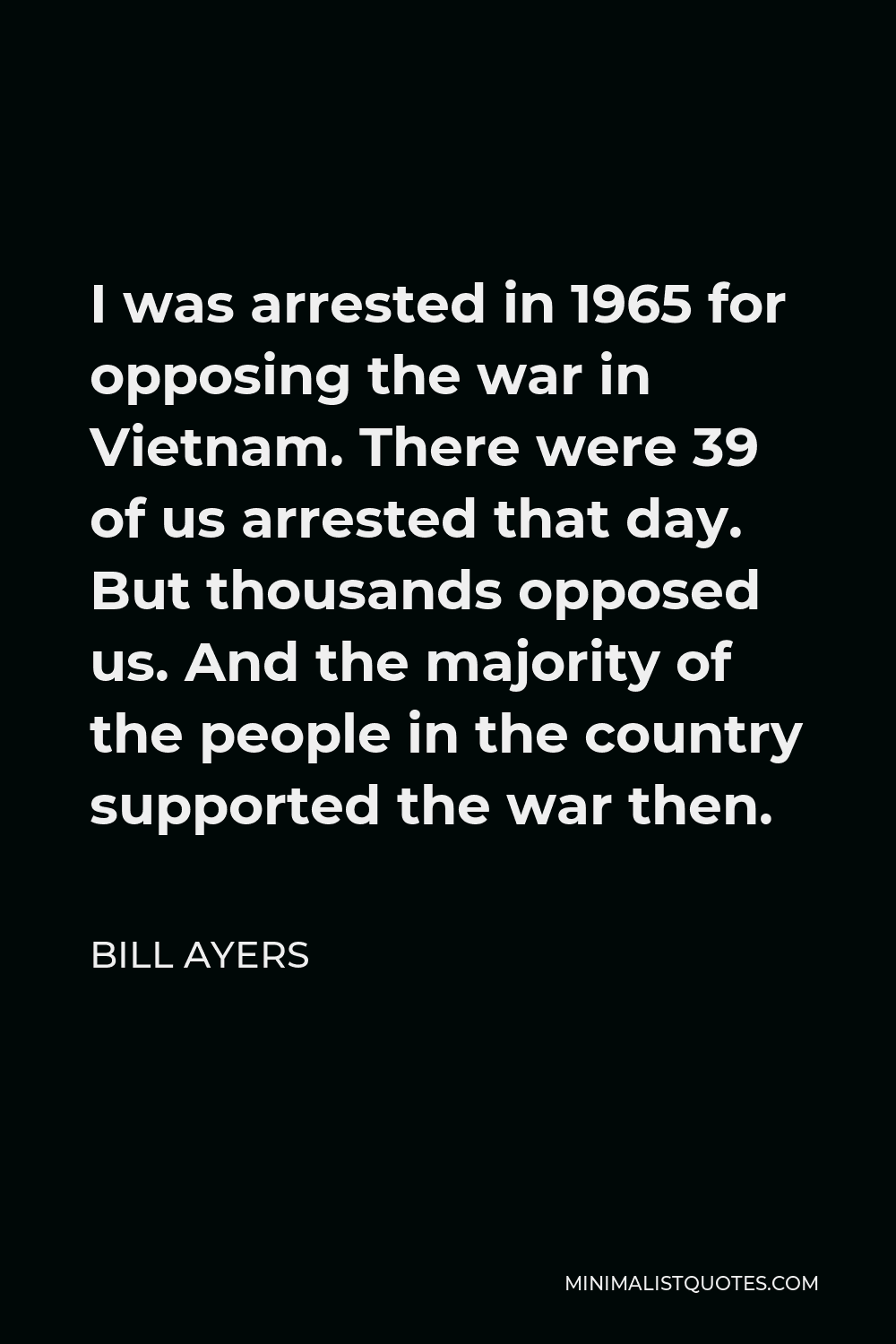
I was arrested in 1965 for opposing the war in Vietnam. There were 39 of us arrested that day. But thousands opposed us. And the majority of the people in the country supported the war then.
BILL AYERS -





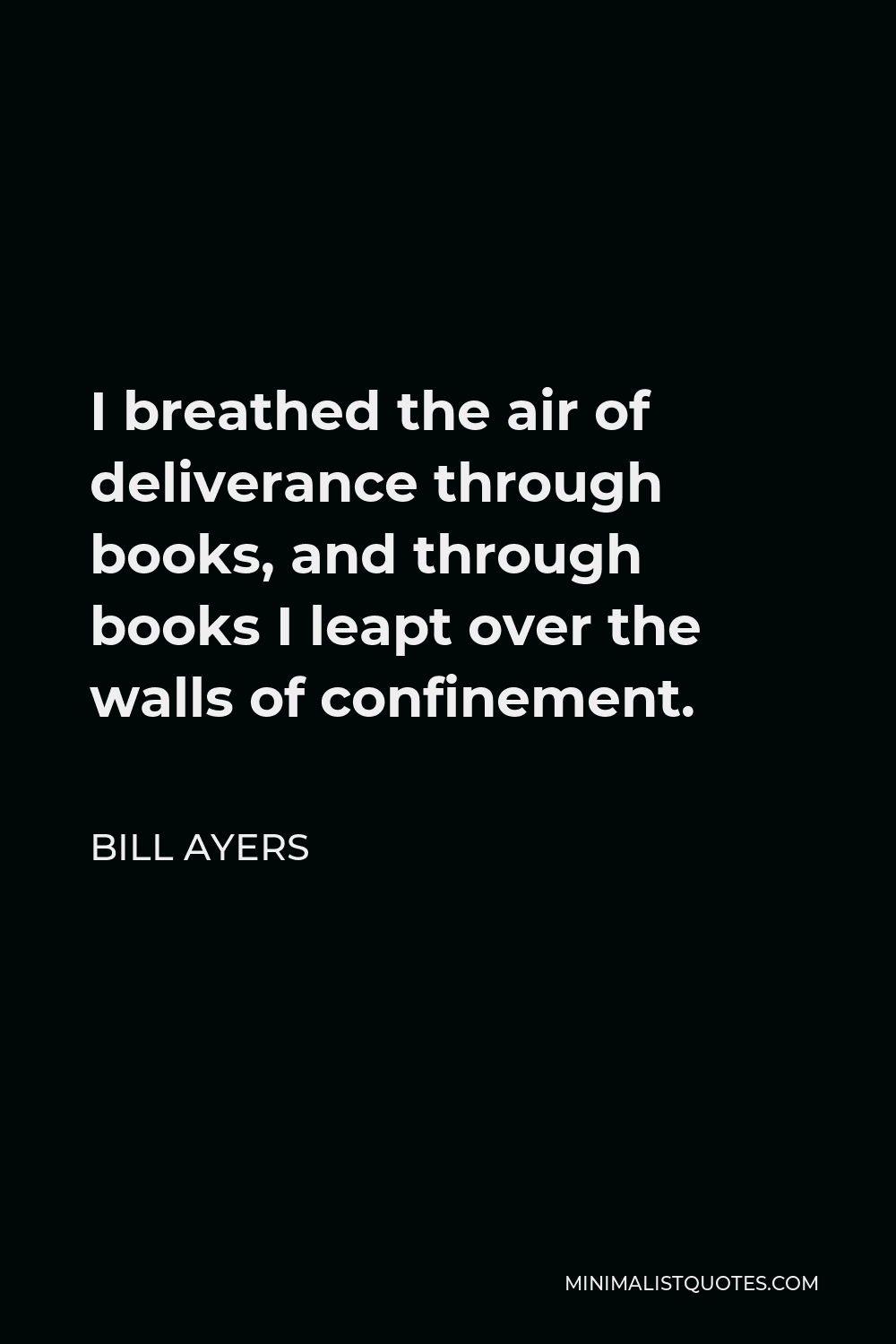
I breathed the air of deliverance through books, and through books I leapt over the walls of confinement.
BILL AYERS -





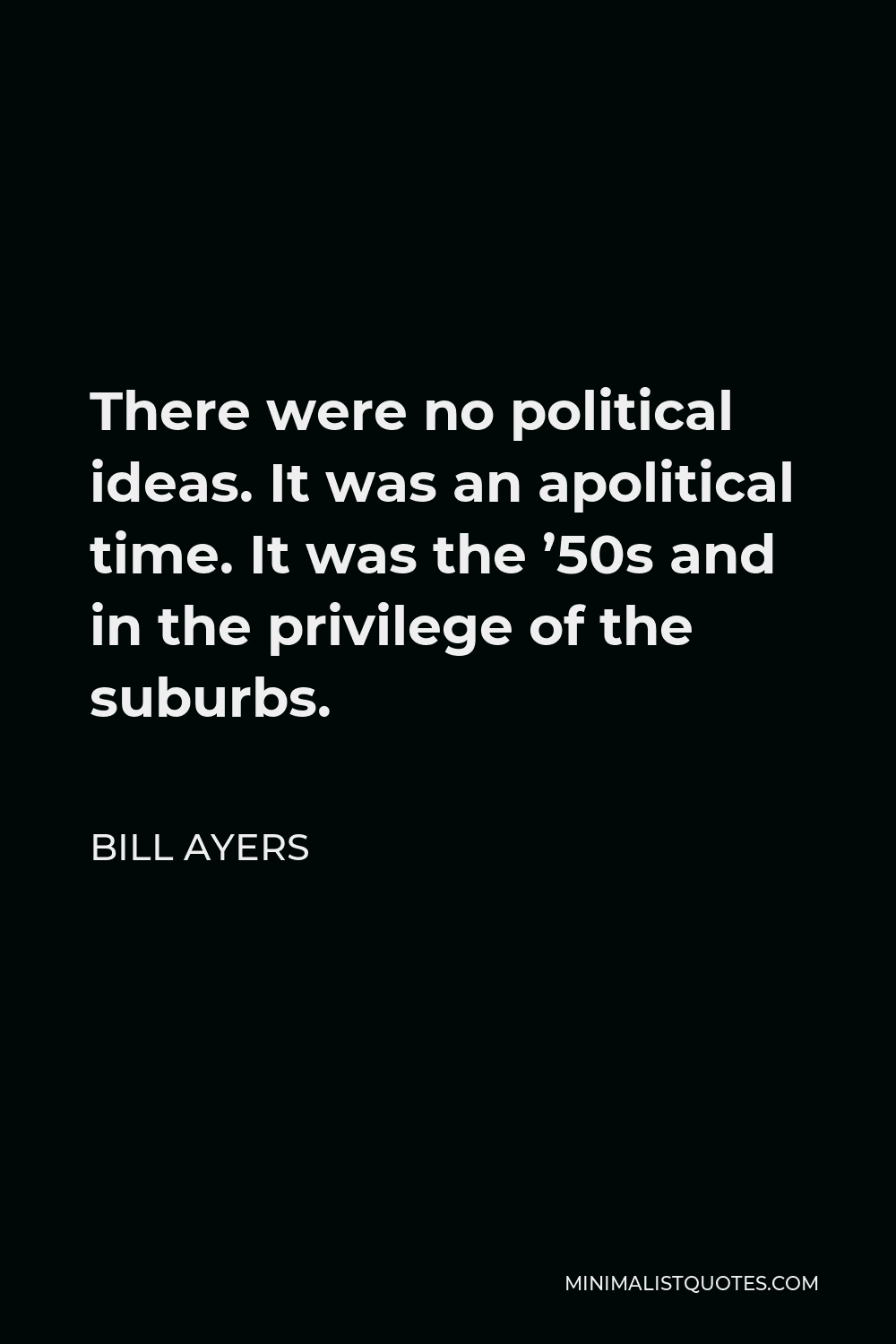
There were no political ideas. It was an apolitical time. It was the ’50s and in the privilege of the suburbs.
BILL AYERS -





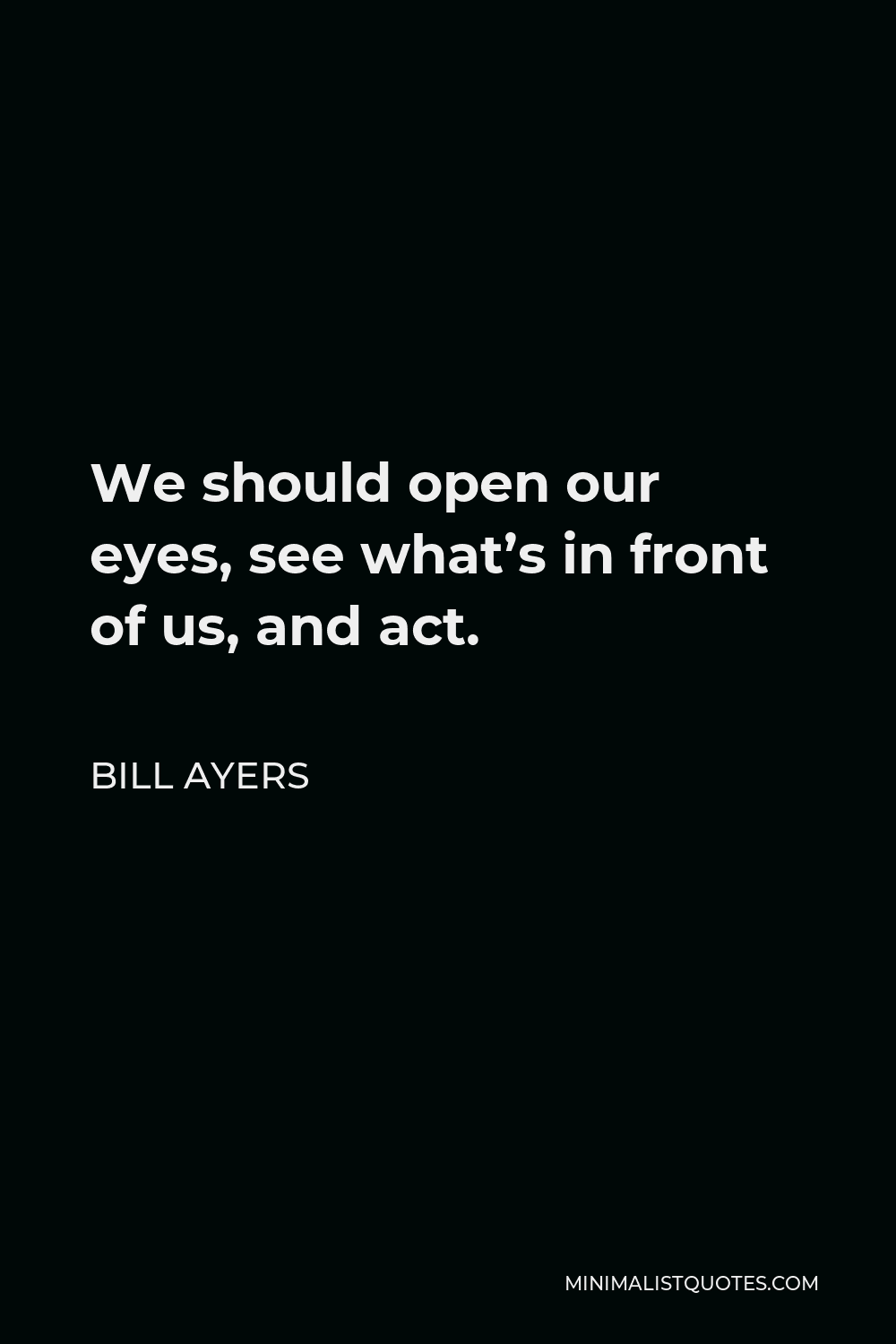
We should open our eyes, see what’s in front of us, and act.
BILL AYERS -





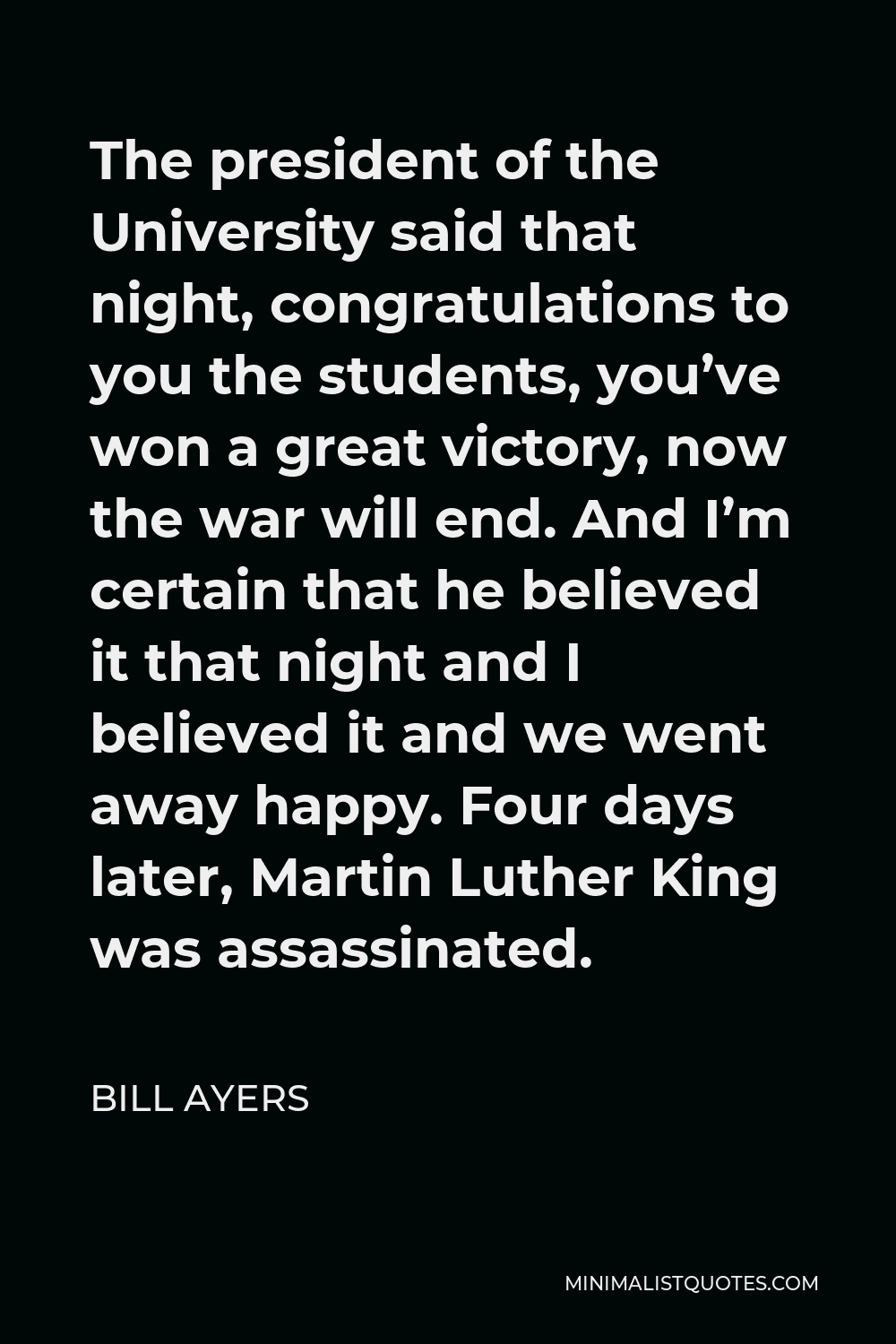
The president of the University said that night, congratulations to you the students, you’ve won a great victory, now the war will end. And I’m certain that he believed it that night and I believed it and we went away happy. Four days later, Martin Luther King was assassinated.
BILL AYERS

